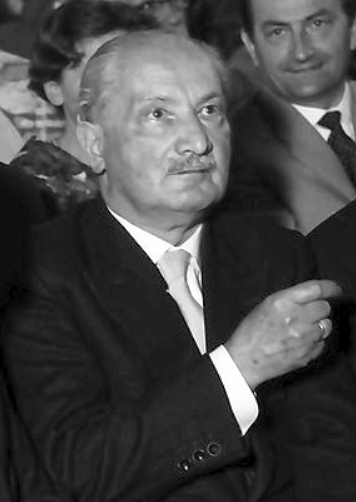Мартин Хайдеггер знаменитые цитаты
Мартин Хайдеггер Цитаты о мужчинах
Только наше чистое бытие в потрясении этого провала, когда ему не на что опереться, всё ещё тут.
Мартин Хайдеггер Цитаты о мышлении
мышление, разум, восприятие
Источник: Что значит мыслить
Мартин Хайдеггер цитаты

Жан Бодрийяр, «Некроспектива» (сб. «Прозрачность зла», 1990)
сарказм на «содержательность» их текстов
Станислав Лем, «Summa Technologiae», 2-е (1967) или последующие изд.
Мартин Хайдеггер: Цитаты на английском языке
“Why are there beings at all, and why not rather nothing? That is the question.”
Warum ist überhaupt Seiendes und nicht vielmehr Nichts? Das ist die Frage.
What is Metaphysics? (1929), p. 110
Cf. Gottfried Leibniz, De rerum originatione radicali (1697)ː "cur aliquid potius extiterit quam nihil."
Источник: Introduction to Metaphysics
“Making itself intelligible is suicide for philosophy.”
Contributions to Philosophy (From Enowning) [Beitrage Zur Philosophie (Vom Ereignis)], notes of 1936–1938, as translated by Parvis Emad and Kenneth Maly (1989)
Контексте: Making itself intelligible is suicide for philosophy. Those who idolize "facts" never notice that their idols only shine in a borrowed light.
Контексте: Those in the crossing must in the end know what is mistaken by all urging for intelligibility: that every thinking of being, all philosophy, can never be confirmed by "facts," ie, by beings. Making itself intelligible is suicide for philosophy. Those who idolize "facts" never notice that their idols only shine in a borrowed light. They are also meant not to notice this; for thereupon they would have to be at a loss and therefore useless. But idolizers and idols are used wherever gods are in flight and so announce their nearness.
“The most thought-provoking thing in our thought-provoking time is that we are still not thinking.”
Das Bedenklichste in unserer bedenklichen Zeit ist, dass wir noch nicht denken.
What is Called Thinking? [Was heisst Denken?] (1951–1952), as translated by Fred D. Wieck and J. Glenn Gray (1968)
Basic Questions of Philosophy: Selected "Problems" of "Logic" (Grundfragen der Philosophie: Ausgewählte "Probleme" der "Logik" (1984), translated by Richard Rojcewicz and André Schuwer, Indiana University Press, 1994, ISBN 0253004381, p. 7)
Источник: Basic Writings: Martin Heidegger
Источник: Nietzsche (1961), p. 127
“The human being is not the lord of beings, but the shepherd of Being.”
Letter on Humanism (1947)
The Principle of Reason (1955–1956) as translated by Reginald Lilly (1991) <!-- Bloomington: Indiana UP -->
Контексте: The Geschick of being: a child that plays... Why does it play, the great child of the world-play Heraclitus brought into view in the aiôn? It plays, because it plays. The "because" withers away in the play. The play is without "why." It plays since it plays. It simply remains a play: the most elevated and the most profound. But this "simply" is everything, the one, the only... The question remains whether and how we, hearing the movements of this play, play along and accommodate ourselves to the play.
Interview (23 September 1966), published posthumously in Der Spiegel (31 May 1976), as translated by Maria P. Alter and John D. Caputo in The Heidegger Controversy : A Critical Reader (1991), edited by Richard Wolin.
Контексте: Philosophy will not be able to effect an immediate transformation of the present condition of the world. This is not only true of philosophy, but of all merely human thought and endeavor. Only a god can save us. The sole possibility that is left for us is to prepare a sort of readiness, through thinking and poeticizing, for the appearance of the god or for the absence of the god in the time of foundering [Untergang] for in the face of the god who is absent, we founder. Only a God Can Save Us.
“Everywhere we remain unfree and chained to technology, whether we passionately affirm or deny it.”
The Question Concerning Technology (1954)
Контексте: Everywhere we remain unfree and chained to technology, whether we passionately affirm or deny it. But we are delivered over to it in the worst possible way when we regard it as something neutral; for this conception of it, to which today we particularly like to do homage, makes us utterly blind to the essence of technology.
Источник: Nietzsche (1961), p. 35
“The possible ranks higher than the actual.”
Introduction
Being and Time (1927)
Источник: Nietzsche (1961), p. 70
Источник: Nietzsche (1961), p. 19
